Biobased resources
A major goal of the bioeconomy is to use larger quantities of biobased raw materials to produce energy, transport fuels and feedstock for industrial processes. This requires detailed analyses, simulations, concepts and processes. Major focus needs to be placed on issues relating to crop production, biomass potentials, land surface requirements, conversion technologies, biobased value creation networks and food security. Agriculture, forestry, waste management and the industry in general will need to work in concert as far as the raw materials all of them use or deal with are concerned.
-
Start-up PROSERVATION - sustainable packaging - 21/09/2021
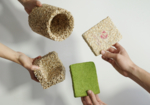
Expanded polystyrene (EPS) packaging is very practical, but it is made from petroleum and is not very environmentally friendly in other ways either. Single-use plastic containers made of EPS have therefore been banned in the EU, but alternatives are also urgently needed. The Stuttgart-based start-up PROSERVATION has developed an ecological packaging material made from grain husks that could replace EPS and be just as effective.
-
Reduction of greenhouse gases in wine production - 31/08/2021

In the EU project REDWine, the CO2 produced during wine fermentation is captured and used to produce algae biomass. Novis GmbH from Tübingen supplies the complete system for CO2 utilisation. The aim of the project is to reduce the share of global warming caused by wine production in a way that is economical for producers.
-
Plastics from the field - 12/08/2021
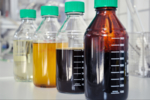
Huge amounts of waste are produced both during food production and by consumers. The Conversion Technologies of Biobased Resources group at the University of Hohenheim’s Institute of Agricultural Engineering has developed a process to convert this biomass into hydroxymethylfurfural (HMF), the highly potent basic chemical that is used to produce plastics.
-
ROKO Farming - 03/08/2021
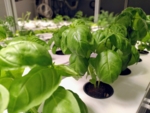
ROKO Farming’s novel technology is designed to produce fruit and vegetables worldwide all year round, while also freeing up areas for rewilding. This semi-automatic production method created by the Ulm-based business has huge future potential, as their success in innovation competitions demonstrates.
-
Alpha-Protein GmbH - 27/07/2021
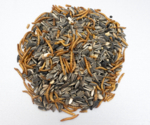
Mealworms instead of fish meal and soybean meal - this is what the sustainable future of feed production looks like as Alpha-Protein GmbH see it. The company has built a highly efficient automated production plant in which residual materials from local food production are used to breed mealworms.
-
Start-up kernique catch the zeitgeist - 29/06/2021
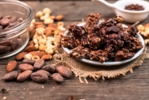
A delicious vegan nut snack that uses no sugar, artificial additives, gluten or palm oil, is full of essential nutrients, and is part of a commitment to environmental and social sustainability. Impossible? An Esslingen-based start-up called kernique proves otherwise. The start-up is currently planning a crowdfunding phase that offers a lucrative deal for investors. The idea catches the zeitgeist, but what exactly makes it stand out?
-
Zero Bullshit Company - 31/05/2021
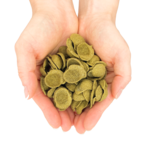
Throwing away food? The Stuttgart-based start-up Zero Bullshit Company is declaring war on food wastage by making nutrient-rich products largely from food industry leftovers. The three food technologists who created this transparent brand are looking to develop more than just delicious and nutritious products.
-
Alternative source of protein - 07/04/2021
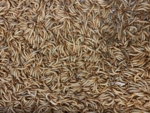
It is estimated that by 2050, if not before, the world's population will have grown so much that it will be difficult to provide adequate supplies of food for everyone. It is therefore high time to look for alternatives. One option could be insects as an environmentally friendly source of protein for humans and animals. The start-up company Cepri is developing smart insect farms with the goal to make primary production, which is not yet…
Website address: https://www.biooekonomie-bw.de/en/articles/biobased-resources







